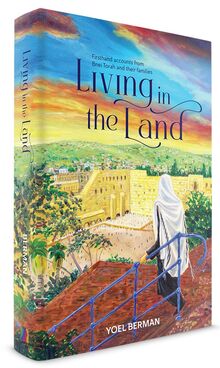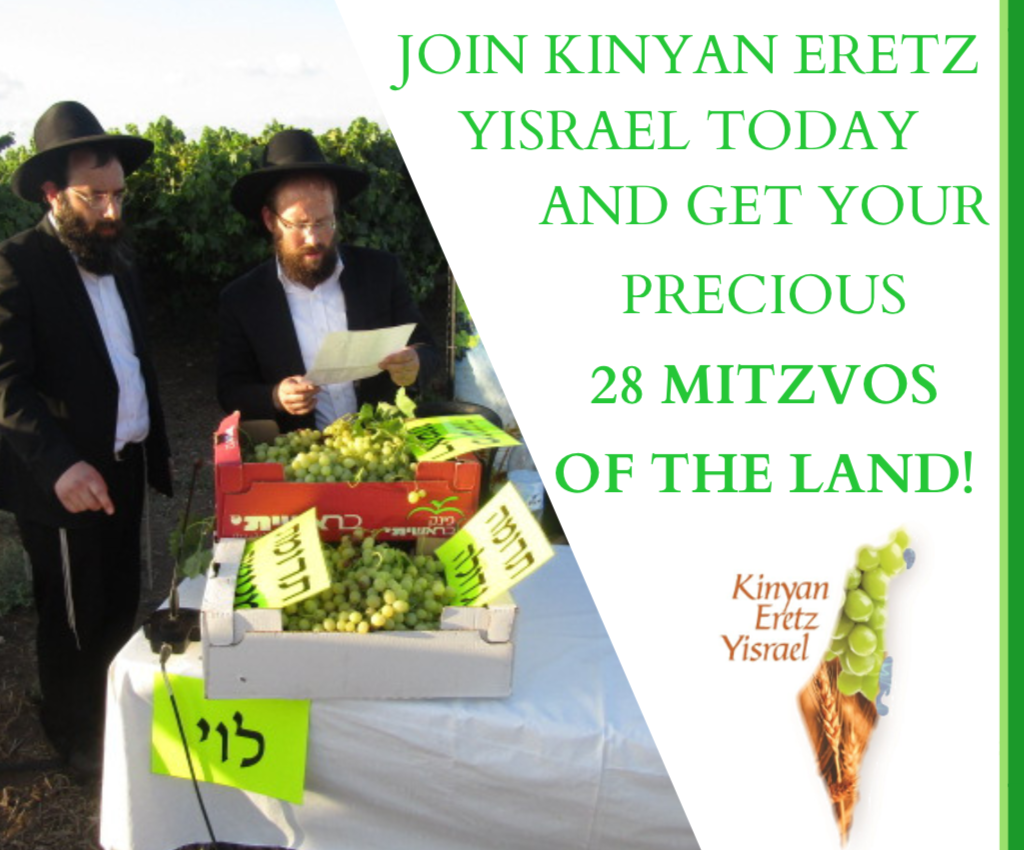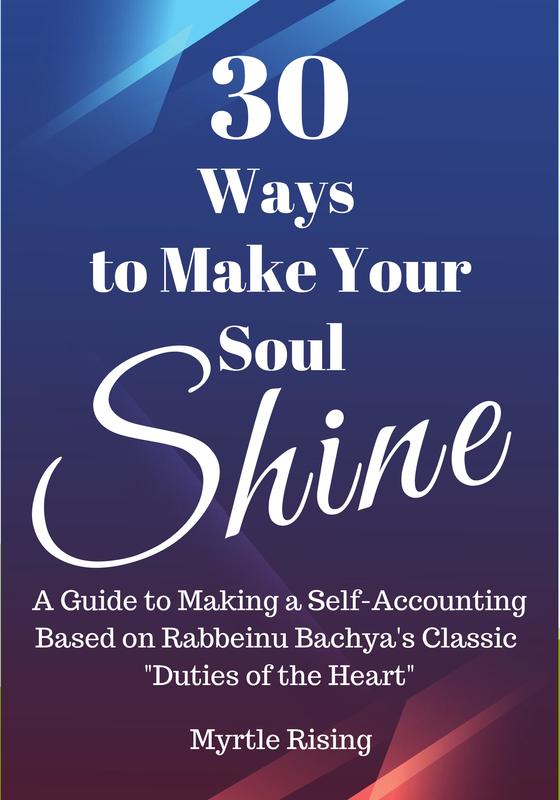
Living in the Land, Mosaica Press 2023 by Yoel Berman:
Fifty frum olim describe the joys, challenges, and opportunities of making the move to Eretz Yisrael, as well as the resources and strategies that made for success.
And it comes with a strikingly beautiful cover by the gifted frum artist Yehoshua Wiseman.
I think we have really been needing a book like this and it's great that Yoel Berman fulfilled this need.
Why Focus on Charedi Aliyah?
And charedim from outside of Eretz Yisrael, despite not being "Zionist," comprise a huge percentage of aliyah.
You run into them everywhere in Eretz Yisrael.
Charedim really need guidance devoted to their specific needs — needs which vary from group to group and family to family and individual to individual.
With most aliyah organizations having been secular or traditional, charedi needs & interests traditionally got shoved to the side — though that never stopped charedi aliyah.
In fact, the charedi aliyah continues to increase.
With humbling self-sacrifice, they settled the Land, built up & expanded Jewish settlement — even sacrificing their lives for this goal.
And Charedim continue to contribute to Jewish growth in every way.
I remember when Ramat Eshkol was a depressingly secular Israeli neighborhood. Within 20 years, it transformed into a vibrant charedi community, encompassing a thriving English-speaking community.
The face of Yerushalayim also changed with the growth of Torah-observant communities in all sectors.
I remember Yerushalayim over 30 years ago and feel awe at how it transformed, with frum people vastly outnumbering the secular, and secular ads and stores shrinking while you can see things like a huge sign advertising for "Savta Sara's Cholent!"
Location, Location, Location
Finding the right community (and most importantly, the right schools for your children!) remains the most essential ingredient in a successful aliyah.
Even those who performed pilot trips before moving here sometimes still needed to move once (or thrice) more before they found "their" place here.
So the book is worth it just for that.
A Tapestry of Journeys Emanating from the Searching Jewish Soul
Whereas everyone else focuses on the political movement of Zionism, charedim focus on living in Eretz Yisrael and the pure mitzvah of it as written in the Torah — something a Jew should do regardless of who's in charge.
This has always been the traditional view of simple Jews, rabbanim, and tzaddikim since Biblical times.
So the thread uniting the variety of personalities and experiences lies in their spiritual development leading to their aliyah.
Some people always felt it, while others developed it later via Torah learning and speaking with talmidei chachamim.
Living in Eretz Yisrael remains a profoundly spiritual experience.
In fact, anyone interested in yishuv Eretz Yisrael for religious reasons (really, the only reason), even if not charedi, can benefit from and find like-minded Jews in this book.
Even when all sorts of inconveniences and aggravations get religious olim down, the spiritual aspect gets them back up again.
The book covers many topics: parnasa, schools, security, religious life, general life — and all different kinds of struggles, including how these olim resolved their various problems.
It also cover so many different types of charedim settling in Eretz Yisrael: all different kinds of groups, professionals and kollel avreichim, housewives and professionals, people who came with children, before children, or as grandparents, and even a frum woman with a powerful (and spiritual) inclination for farming.
There are Anglo olim who end up living in very Anglo communities and those who end up in Israeli communities with few English-speakers.
We all hear from olim who settled all over the country.
The book includes a resource section to help any Jew who wishes to make a religious aliyah.
Also, this book is not chapter after chapter of clones.
In other words, it's not the same story over and over again, using different names and locations.
Each chapter presents a whole world, many very different than the others.
Sure, there are similarities in hashkafah and the spiritual attitude, but some of the olim really struggled with their background and adjustment before and after coming.
And there isn't just one charedi hashkafah. The book presents the rainbow of the charedi world.
Does This Book Contain "Aliyah Bullying"? (Nope.)
Furthermore, I understand some people shy away from the topic, reluctant to suffer anymore "aliyah bullying."
This book doesn't do that.
You receive an inside look at the inner journey and religious awakening (including of FFBs) regarding aliyah.
Some of the olim initially struggled with figuring out the right path, exploring the psak of Rav Moshe Feinstein and many other great rabbanim, contrasting and comparing different Torah opinions to figure out how they should proceed.
There's a lot of encouragement, a friendly "Come and join us!" attitude, combined with honest observations & comparisons of both American and Israeli society, and a solidly religious outlook encompassing it all.
(And yes, the book primarily features American olim, but olim from other English-speaking countries also make an appearance.)
If you'd like to read actual samples of the stories, feel free to visit the author's website:
https://www.aviraderetzyisroel.org/blog
Also, the author offers several options for acquiring the book wherever you are in the world:
https://www.aviraderetzyisroel.org/buy-book
Excerpts from Living in the Land:
I once asked my mashgiach why there were certain neighborhoods with a lot of kids from an American background “off the derech.”
He said that in his opinion, in many instances, it was because the parents were bashing the same local chinuch system to which they were sending their children.
If you’re going to move here, you have to back the system to which you are going to send your children.
[Note from Myrtle Rising: In my experience, this hugely contributes to young olim not making it here. For their children's own good, people either need to feel positively about their children's schools or find schools about which they can feel positive.]
Our children’s primary language is Hebrew, and they are able to learn with no language barrier.
Where I struggled with limudei kodesh, they fly.
Also, I was amazed at the curriculum. The kids are taught on a higher level.
Even if they don’t fully grasp everything now, the seeds are planted for the future — though I was very surprised to see just how much my six-year-old actually does pick up, and how he explains difficult parashah topics with a clear understanding.
There is a connection that I feel toward Hashem here.
He is the One watching over Klal Yisrael here, and He feels so close to us.
I know that there are many Gedolim in America, but there’s just something so special about having been able to talk to Rav Chaim [Kanievsky ztz"l, who passed away after this was written], go to the Kosel and pour my heart out, go to Kever Rachel, or walk the streets where I know that our Avos walked.
Aside from the fact that you can now get most American products in Eretz Yisrael, I’ve also found that like any diet, after time on that diet you lose your craving for the forbidden foods.
I’m no longer craving or even needing extra padded cotton swabs or three-ply toilet paper.
Through living a less gashmiyusdik life in Eretz Yisrael, you’re really zocheh to see the shining light of Hashem and the ruchniyus involved in your daily life.
One of the main points of contention [from others] was “concern” with my parnasah.
How could I insist on living in Eretz Yisrael if I didn’t know how I would make a parnasah there?
My reply was that, last I checked, it was the Ribbono Shel Olam who provided parnasah, and I was sure He could provide it in Eretz Yisrael, too.
In an interesting twist, I now make part of my parnasah here in Eretz Yisrael in a way I could never have done abroad; I’m a tour guide in and around the Old City of Yerushalayim.
...I invested my time in promoting nature education in chadarim and Bais Yaakovs around Eretz Yisrael and that was very rewarding.
I dabbled in small-scale homesteading projects. I grew cucumbers and made yogurt.
With the flow of years, this grew to encompass keeping egg-laying hens, picking olives for oil, beekeeping, fermenting vegetables, and making my own soap.
I was happily busy with my family, my career, and my community work — and yet my farming interests never left me. Instead, they only grew.
After we moved into our apartment in Ramat Beit Shemesh four years ago, I took it to the next level, planting twelve fruit trees and building raised beds for sixty-plus vegetable plants in our small yard.
My goal is not just to grow some food, but to enrich the landscape and develop an ecosystem where native plants, birds, and wildlife live in harmony with my family.
Then, about a year-and-a-half ago, I suddenly realized:
I am a farmer.
True, I don’t have rolling acres and a barn. True, I don’t earn my parnasah from it.
I didn’t close my business. I didn’t move to a moshav. I didn’t compromise my spiritual values.
Nevertheless, a farmer I am.
There is something special about farming in Eretz Yisrael.
http://aviraderetzyisroel.org/
Note: The author intends to publish more recent stories of olim, exploring their experiences after the Great Horror that came from Gaza.
But BEFORE I read the book, the author directed me to his website, where I could read samples of his writing, some of which appear as chapters in the book.
AFTER seeing his writing comprised material I can support, ONLY THEN did I accept a copy of his book for review.
Why is this important? It's because I don't want to give bad or even mixed reviews of books by authors who are shomer Torah & mitzvot (because I don't want to hurt their feelings or parnasa).
Occasionally, the Inbox receives an email from an author nicely asking me to review his or her book.
I've said no as often as yes, merely because I didn't think I'd end up liking the book enough to post a positive review.
On the other hand, I refuse to back a book (including fiction) which expresses views I cannot support. A lot of times, I don't even want to read it because I think it wouldn't be good for me.
In those cases, perhaps the book is extremely well-written, but doesn't suit my very not-terribly-flexible hashkafahs.
Just to emphasize: I do say NO in many cases.
I'm nice about it, but uncompromising.
In other words, I'm not giving a positive view here simply because the author sent me a free copy.
If I can't love the book, if I don't think it will benefit others, then I simply will NOT review it.
And there you go.


 RSS Feed
RSS Feed
